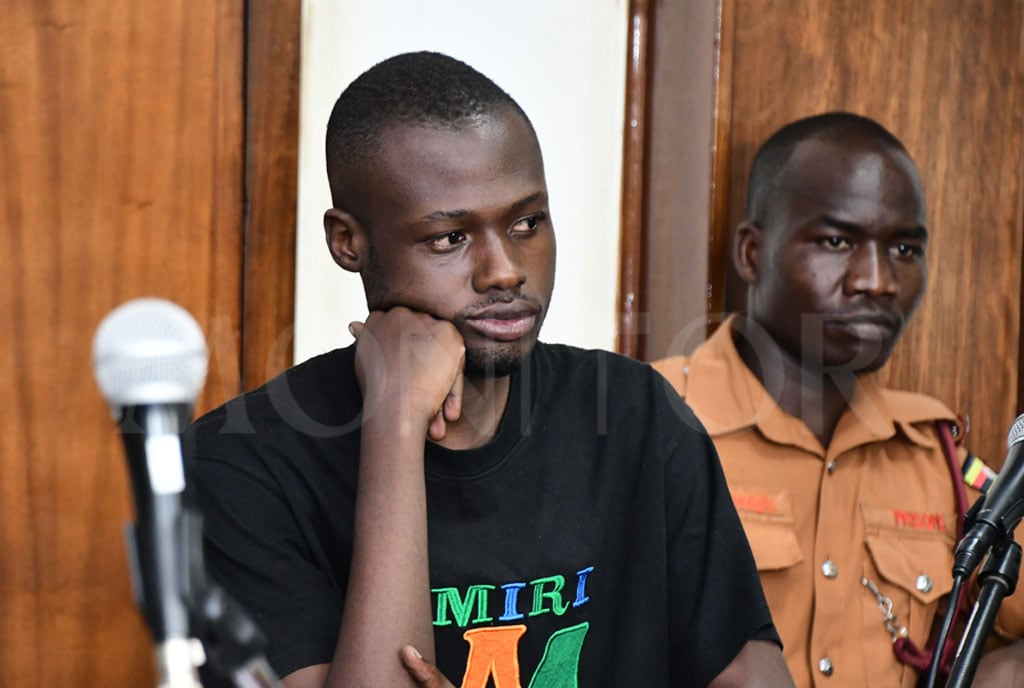ICC tasks govt on Bashir arrest

President Museveni (Right) greets Sudan’s Omar-al-Bashir at the former’s inauguration in Kampala in May. PHOTO BY PPU
What you need to know:
Caution. The international court reminds Uganda of it’s obligations to the treaty it signed.
KAMPALA.
The International Criminal Court (ICC) has written to the government seeking an explanation over the failure to arrest embattled Sudanese president Omar-El-Bashir, who was in the country last week to attend President Museveni’s sixth swearing-in ceremony.
The presiding Judge Cuno Tarfusser in a May 17 communiqué directed the court’s registry, which is responsible for external affairs, to request “competent authorities of the Republic of Uganda to submit by June 24, their observations with respect to their failure to arrest and surrender Omar-El-Bashir while present on the territory of Uganda.”
The letter was also countersigned by two other Judges March Perrin de Brichambaut and Chang-ho Chung.
The ICC’s regional outreach coordinator Maria Kamara confirmed the existence of the document, saying: “it is just a request for a submission.”
The request for submission comes on the heels of a diplomatic protest memo the court tendered to Ugandan authorities on May 11, a day before the swearing–in, reminding the government “of their obligations, as a State Party, to cooperate with the immediate arrest and surrender of President Bashir to the Court, pursuant to article 89(1) of the Statute, in the event that he attends the said ceremony.”
“To the date of this report, no reply to the above-mentioned note verbale, has yet been received from the authorities of the Republic of Uganda,” the confidential note sent to the Foreign Affairs ministry last week reads in part.
It further states that: “The Registry requests guidance from the Chamber on the steps to be taken with respect to the visit of Mr Bashir to Uganda.”
President Bashir, who is wanted by the Hague-based court, was in the country at the invitation of government. He is wanted on two counts of crimes against humanity and genocide of more than 300,000 deaths in Sudan’s Darfur region.
The court issued double warrants for him in 2009 and 2010 on the same. Copies of the warrants were served to government.
He flew into the country last Thursday, the day of the swearing-in ceremony and departed immediately after. His attendance rattled diplomats from the European Union and US government who stormed out of the ceremony at Kololo Independence Grounds, and after President Museveni made disparaging remarks about the court as he introduced the Sudanese president.
President Museveni is a celebrated critic of the court who, when usually in company of other African leaders, accuses it of being a tool of Western powers to witch-hunt leaders on the continent and have threatened to withdrawal from the Rome Statute.
The court handles four major international crimes of aggression, war crimes, genocide and crimes against humanity.
Mr Okello-Oryem, the State minister for Foreign Affairs, told Daily Monitor yesterday, that they will respond to the letter “directly in line with the President’s position which is very clear.”
“There is no reason for ICC to be confrontational, because our stand as a continent is that it is a tool used by the West to target African leaders,” he said.
“Unless it revises its approach, we have no business with them.” Mr oryem, foreign affairs state minister said.
The failure to arrest President Bashir in Uganda, a signatory to the 2002 Rome Statute, which gave birth to the court, came on the heels of another failed attempt to have him arrested in Johannesburg, South Africa where he had gone to attend the African Union’s 25th summit last year.
Parliament ratified the ICC treaty in June 2002 and in 2003 [Uganda] made the first referral of rebel leader Joseph Kony and his five deputies under the Lord’s Resistance Movement [LRA], whose arrest warrants were issued in 2005.
The ICC early this year conducted and concluded the pre-trial session of Kony’s deputies Dominic Ongwen, and ordered the case to go on full trial on a date yet to be named.
When contacted yesterday, Solicitor General Francis Atoke, said he was aware of the “current situation” but it was yet to be brought to his attention formally.




